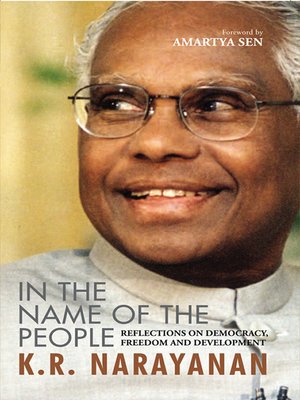In the Name of the People
ebook ∣ Reflections on Democracy, Freedom and Development
By K R Narayanan

Sign up to save your library
With an OverDrive account, you can save your favorite libraries for at-a-glance information about availability. Find out more about OverDrive accounts.
Find this title in Libby, the library reading app by OverDrive.



Search for a digital library with this title
Title found at these libraries:
| Loading... |
K.R. Narayanan's life graph reflects in many ways the fruition of the promise of 'equality of status and opportunity' that the Constitution guaranteed every citizen; from humble beginnings in a remote village to a distinguished career as an academician, diplomat, politician and, finally, India's first Dalit President, Narayanan embodied modern India's indomitable spirit. As President, as diplomat and as a citizen of India, Narayanan believed strongly in the ideas and principles that the nation was built upon—nationalism, democracy, economic progress, religious tolerance and social justice—and these found memorable expression in his speeches and writings over the years. In the Name of the People brings together Narayanan's most important writings spanning five decades, from his first published article in 1954 to the Republic Day speech of 2000. In these pieces, he covers a diverse range of topics, from Indo–US ties and India–China relations to human development, Islam in India and women in politics; from the benefits of the parliamentary system and the need to build democracy from the grassroots to the role of education and technology in development and the importance of a sustainable environment. Also included are personalized accounts of Ambedkar, Gandhi and Nehru, and a good representation of Narayanan's key presidential speeches. Informed, perceptive and well-argued, the pieces in In the Name of the People constitute one of our greatest statesmen's reflections on independent India, and are especially striking in their continued relevance to the life of the nation.






